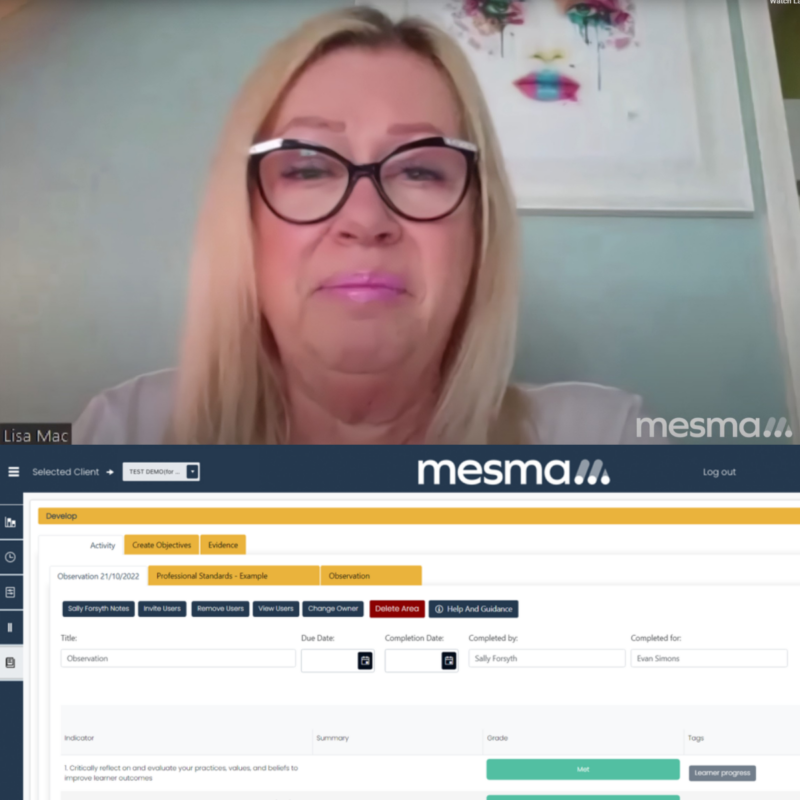Mesma drives quality improvement at training provider

Award winning training and apprenticeship provider JGA is improving self-assessment and quality planning across its operations using Mesma education software.
With offices in Uxbridge and London, the JGA Group delivers a range of apprenticeship training and skills development in sales, marketing and business management to approximately 1300 students who are looking to attain industry recognised qualifications to secure work. It also provides adult funded programmes and has an End-Point Assessment arm, Progress Minded.
Mesma’s software has been used by the company since 2019, providing the platform for improved quality across its operations and the management of critical assurance processes. Specifically, the technology simplifies complex processes, ensuring management information is used to target resources in the areas that have the most impact on learner quality, customer experience and measurable outcomes.
JGA has tailored Mesma to meet the needs of its 60-strong employee users, providing business critical data to identify gaps in quality performance and suggested solutions. It also offers a centralised platform to manage important functions alongside more effective monitoring and feedback on progress and impact against improvement plans.
Director of quality and performance, Lisa MacCormac, said that Mesma reaps dividends for her and the team because they can better focus on how to improve and measure quality.
She said: “Mesma makes us focus on quality and the ability to secure improvements through greater employee collaboration. We can also manage our processes far better because our self assessment reports and improvement plans are centralised. This allows everyone to see via a single accessible document, the critical tasks and objectives and when these are due.
“Using the Enquire module enables us to undertake deep dives to check on progress and impact on learners. This all saves time and ensures more effective use of resources.”
The capacity to process information on a daily basis is an issue spanning the education sector. However, using Mesma to help identify trends, JGA is able to respond through more targeted support and allocation of resources while quality assurance activities are far more consistent, interactive and facilitate far more effective action planning and support, added Lisa MacCormac.
“This supports the aims of our Professional Practice Framework and the recommendations from our 2019 Ofsted’s inspection. Indeed, inputs and contributions which raise standards and facilitate a quality-driven learner experience ultimately deliver better results for the learner,” she added.
The added value of Mesma is also seen in the wider contributions it makes to informing the dialogue and discussions around JGA’s responses around Covid, initial assessment challenges, and supporting neurodiverse learners along with the relationships it enjoys with colleges and other training providers. “We are benefitting from the invaluable opportunities to interact with others and mutual support, allowing us to tackle and overcome issues and make improvements, ably guided by Mesma,” observed Lisa MacCormac.
As a forward-looking business, JGA will continue to develop the way it uses Mesma, Lisa MacCormac said:
“We will see a steadily growing requirement for ever more rapid and effective reporting and feedback in an ever-shifting learning and training landscape and technology has a seminal role to play in helping us do this.
“It’s why we are investing time to help develop online tools like Mesma to further improve quality company wide, showcase good practice, identify trends and direct resources where they are most needed.”
Mesma is proving to be a shrewd investment for JGA, securing demonstrable improvements in quality and transforming the measurement of progress into a more manageable process as the training provider looks towards their next Ofsted inspection with the aim of achieving an outstanding grade
“The challenge to pull together quality improvement practices underpinned by a comprehensive policy and a professional practice framework, which show how staff are supported and challenged in order to develop and improve their own practices, is being met.“ Lisa MacCormac concluded.











Responses